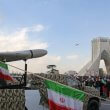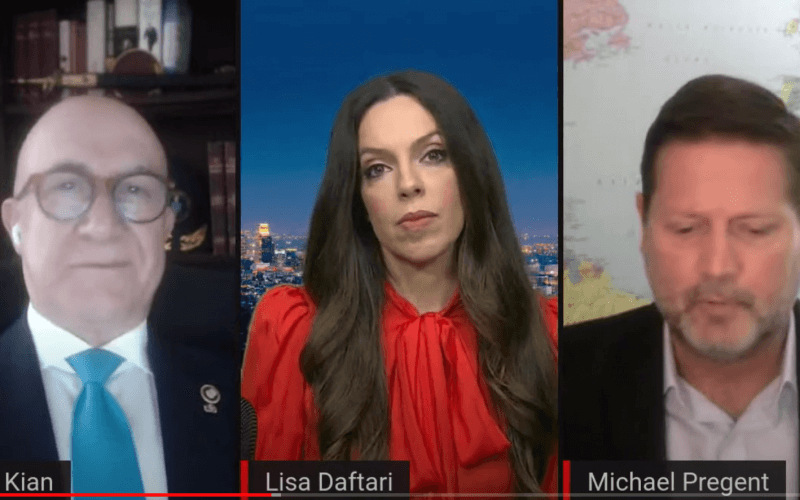Re-entrance into the Iran Deal would place “political expediency” over “long-term strategic interests,” bolstering U.S. adversaries and harming Americans and regional allies, according to Bijan Kian, President of the Institute for Voices of Liberty and Michael Pregent, Senior Fellow at the Hudson Institute.
“The administration has to choose between pleasing a small portion, I would like to say a small portion of the Democratic party that’s had a lot of power and is gaining more, or [paying] attention to the long-term, strategic interests of the United States,” said Kian on The Foreign Desk Power Panel with Lisa Daftari Monday.
Pregent and Kian both emphasized the importance of reverberating the voices and desires of freedom-seeking Iranians in the discussion on Middle Eastern policy.
Kian explained that the U.S. government often says it is negotiating with governments, not people when it is making deals with Iran; however, Kian challenged the administration to “take a look at the legitimacy of the government” the U.S. is negotiating with, which is “the same government…the State Department has put on top of the state sponsors of terrorism, and you say we negotiate with the government, not the people. There’s something wrong with that picture.”
At this point, “The Islamic Republic of Iran needs the JCPOA more than anybody else does. They’re trying to use the playbook where they make threats,” but “this regime has done nothing but destabilize its internal economy” and “destabilize the region,” according to Pregent.
Pregent stated that President Biden has yet to contact Prime Minister Netanyahu or Saudi Arabia’s Mohammed bin Salman to discuss their thoughts on rejoining the Iran Deal and emphasized that Biden’s recent decision to re-examine arms sales to the UAE and Saudi Arabia and re-instating humanitarian aid to the Palestinians will ultimately benefit Tehran and hurt U.S. regional allies.
“Those things benefit our adversaries. They’re not benefiting our allies, and again it’s the administration that continues to listen to small voices, and they’re not listening to American voices; what’s best for America,” said Pregent.
U.S. foreign policy has transitioned into “a Democrat foreign policy” or a “Republican foreign policy,” which is harming America’s ability to pursue consistent and long-term policies in the Middle East that will bolster regional allies above adversaries.
“There shouldn’t be a Democrat foreign policy and a Republican foreign policy. There should be a U.S. foreign policy. Our adversaries shouldn’t hope for election outcomes that favor them…if your adversary is happy you are now part of the foreign policy team, I can’t think of a greater offense,” said Pregent.
Kian expressed that while he did not vote for Biden, he hopes the administration will pursue successful policies in favor of the American people that will “look at the long-term interests of the U.S. and also the people of Iran who are the best peace partners of the United States, history has shown it, and not so much about the Islamic Republic and political expediency.”










